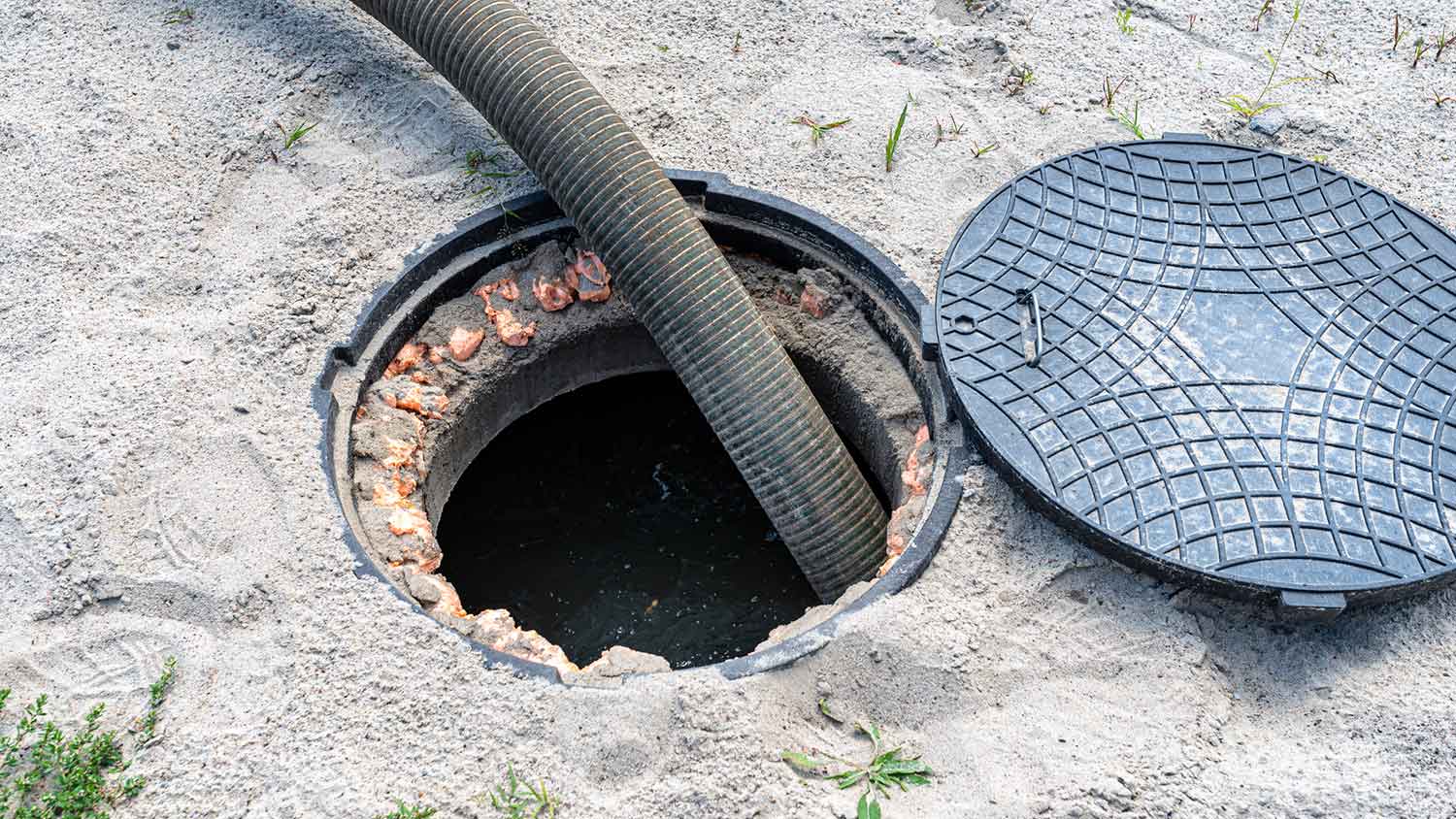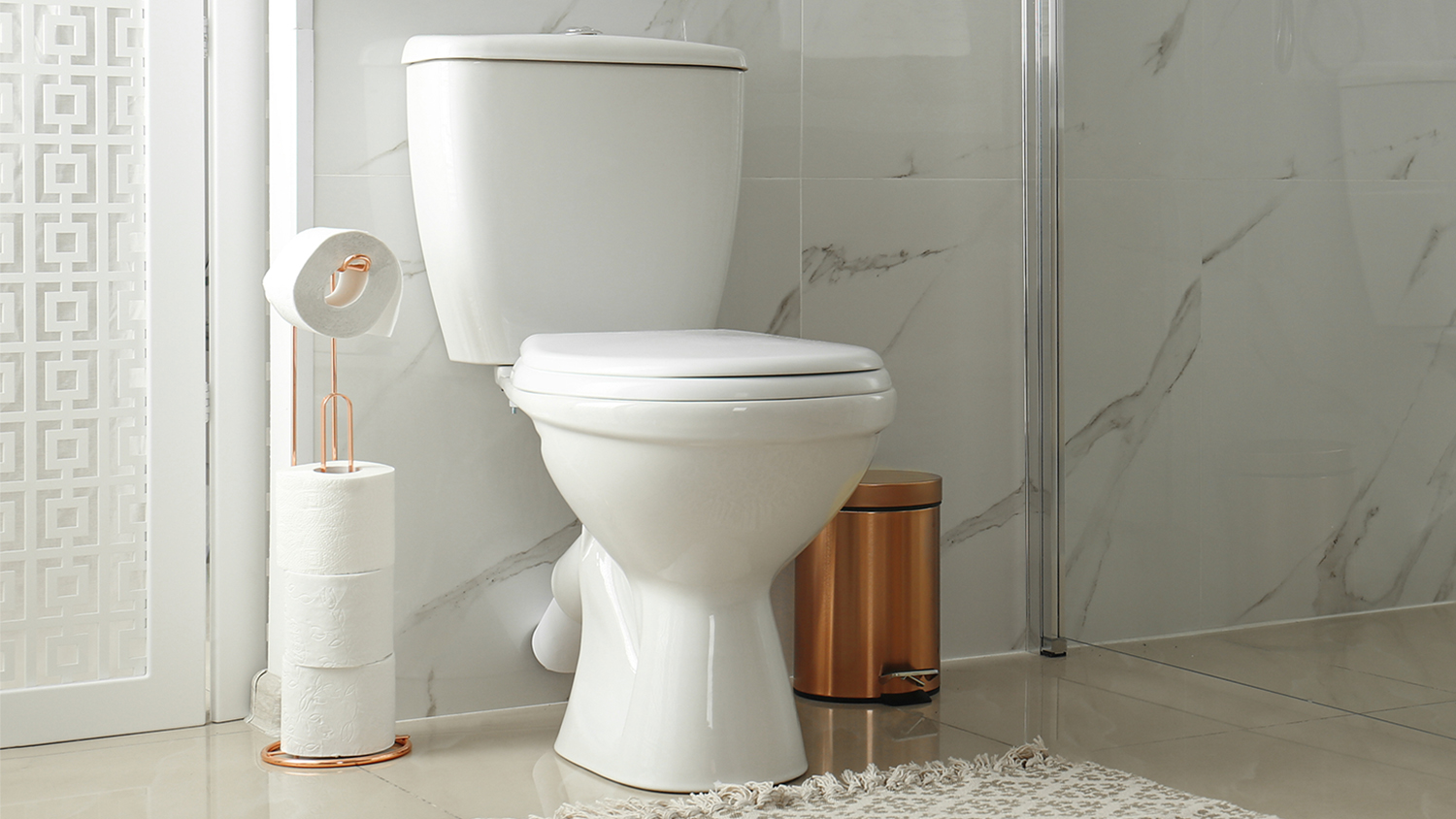
A small septic tank system is ideal for spaces with minimal needs, such as a one-to-two-bedroom apartment or guest house. A small septic tank contains 750 or 1,000 gallons. We’ll cover everything that factors into your small septic system cost here.
Keep your home on the right side of the law


Cesspools are an outdated form of waste management for homes.
Cesspools damage the environment and pose health risks to people.
New cesspools are illegal to build in all 50 states.
Some states allow existing, non-polluting cesspools to remain.
Septic tank systems are a preferred alternative to cesspools.
Every home needs a system to deal with wastewater and sanitary waste, and for many, especially those in rural areas, cesspools are the solution. When you can’t directly hook up to a sewage system, a cesspool will work to capture waste, but it comes with many problems and might be illegal depending on the type being used and the state you’re living in. This guide will explain everything you need to know about cesspools.
If you’re wondering, “What is a cesspool?” you’re not alone. A cesspool is a type of system designed to capture and dispose of sanitary waste, usually from a household. It is essentially a shallow underground pit lined with concrete walls on the sides.
Waste from sinks, toilets, and drains will divert to the cesspool via a pipe, filling it over time. The porous surface of the concrete allows liquid waste to slowly seep through into the surrounding soil, while solid waste gradually accumulates at the bottom. Cesspools must be periodically pumped empty to ensure the concrete isn’t blocked by solid waste.
When it comes to residential cesspools, a large-capacity cesspool is defined by the Environmental Protection Agency (EPA) as a cesspool that collects waste from multiple residential units, or from a building with more than 20 people rather than from a regular single home.
Certain states have different large-scale cesspool definitions. They might be measured by the amount of waste or by the overall volume capacity of the cesspool. In any case, it’s important to understand your state’s definition of a large-capacity threshold. This is because they are illegal at the federal level, a law that is either enforced by the EPA directly or by your state, tribe, or territory’s primary enforcement authority.

In short, new cesspools are illegal to build, and you’ll need to do your research on the specific laws in effect in your state when it comes to continuing to use a cesspool or purchasing a home that has one on the property.
As of 2017, all 50 states (plus Puerto Rico) have outlawed the construction of new cesspools of any size. Cesspools that existed prior to 2017 are allowed to remain in some states (such as New York and Rhode Island) as long as they’re not polluting. As we mentioned before, large-capacity cesspools have been illegal countrywide since 2005 and are required to be safely dismantled. Many states, such as Hawaii, are implementing tax incentives and other financial aid programs to help homeowners shoulder the cost of converting a cesspool to a septic system.
This was done for environmental reasons—untreated wastewater seeping into the soil often makes its way to groundwater reserves, which can even spread to coastlines and other bodies of water over time.
There are two main risks associated with wastewater seepage. One is coliform bacteria, such as E. coli, infecting groundwater supplies and making people sick. The other threat is nitrogen pollution, which can have devastating ecological effects—especially if it reaches oceans and causes algae blooms. With this in mind, cesspools have been set aside as an inferior solution to waste management for homes.
Cesspools and septic tanks are sometimes mixed up—and for good reason. After all, they both store household wastewater and sanitary waste below ground, so what are the differences? As you’ll see, septic tanks are considered to be a superior option to cesspools in every way. When you consider the lower required maintenance, the ecological benefits, and the general hygienic advantages, you’ll probably agree that the costs of installing a small septic system are more than worth it, especially when compared to the somewhat smelly issue of a cesspool.
Cesspools are essentially underground storage containers for your home’s sanitary waste. They use the natural porous quality of their concrete walls to allow liquid waste to seep directly into the soil around them. Cesspools capture waste from a home, but they do nothing to treat waste.
Like a cesspool, a septic tank collects and stores sanitary waste below ground. But unlike a cesspool, septic systems store waste in a self-contained tank which won’t allow anything to seep into the surrounding environment.
There are several types of septic systems, but they all essentially work the same way—solid waste collects at the bottom of the tank and will still need to be pumped semi-frequently. Wastewater is sent through a series of tubes, gradually dispersing it across a large area of land called a drainfield. This makes for a much more eco-friendly alternative to cesspools.
If you’re ready to do away with the hassle, cost, and health risks of a cesspool on your property, you have options. The best avenue is to get in touch with a septic tank company near you—they’ll be able to advise you on the costs of removing your cesspool safely, suggest septic system options that will work best for your needs, and provide a quote for the service to allow you to budget for this important upgrade.
From average costs to expert advice, get all the answers you need to get your job done.

A small septic tank system is ideal for spaces with minimal needs, such as a one-to-two-bedroom apartment or guest house. A small septic tank contains 750 or 1,000 gallons. We’ll cover everything that factors into your small septic system cost here.

Size, materials, and labor all determine the costs of an ejector pump replacement. Follow this guide to help you find the right ejector pump for your budget.

Need to know what sewer line replacement costs in Detroit, MI? This guide will help you prepare to budget for sewer line replacement done by local contractors.

Need to know what sewer line replacement costs in Dallas, TX? This guide will help you prepare to budget for sewer line replacement done by local contractors.

Wondering if an anaerobic septic system is the right choice for your home? Check out this guide to learn more about how this type of system works.

Need to know what sewer line replacement costs in Minneapolis, MN? This guide will help you prepare to budget for sewer line replacement done by local contractors.